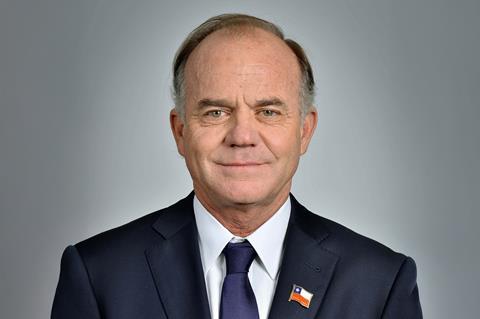SNA president Antonio Walker said Chilean cherries have a bright future – provided they can get the quality right
There is still plenty of room for growth for Chilean cherries in the Chinese market, despite the disappointing results of last season according to Antonio Walker, president of Chile’s National Agricultural Society (SNA).

At the same time, he noted that producers should not lose sight of the need to expand their presence in new export markets.
“It is very important, first, to address China. We still have a significant percentage of the Chinese population that is unfamiliar with cherries. Then, we have to open new markets; we have to delve deeper into Latin America, Europe, and the US,” Walker told Portal Portuario.
“What we do in Asean (the Association of Southeast Asian Nations) is extremely important. These are ten countries with 700mn inhabitants and enormous purchasing power. What we do in the Middle East and North Africa is extremely important. What is just beginning in India is important. We just had a very fruitful trip to India, and we believe we will have results in the medium and long term.”
Highlighting the importance of the cherry export sector to the Chilean economy, Walker said it represents half of the value of the country’s total fruit exports, worth more than US$3bn annually, employs 350,000 people, and has more than 80,000ha of production.
“I believe that the future of cherries doesn’t depend on the markets; the future of cherries depends on us. If we can improve the quality and condition of our cherries, we are in an industry with a bright future,” he said. “The focus must be on industry unity, on coordinating to achieve better quality and condition for a product that is expensive and requires the best possible quality.”
Walker added that the state would always promote and support the sector due to the important economic and social impact it has Chile’s rural communities. “Therefore, the public-private partnership we can establish, for example with the Ministry of Agriculture and Sag, is very important to ensure all the sanitary conditions of our products,” he said.
“We must work in partnership with the Ministry of Agriculture, the Ministry of Finance, the Ministry of Economy, and the Ministry of Foreign Affairs, who must be the main partners in this industry.”



